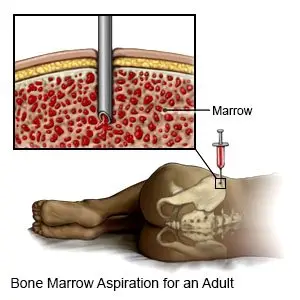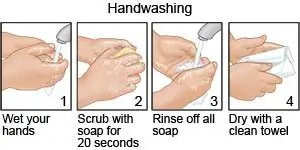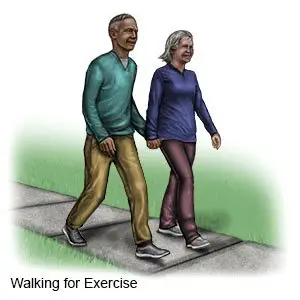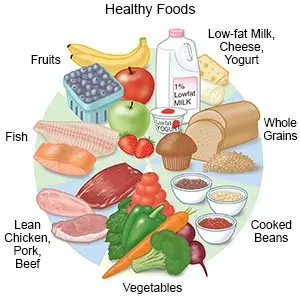What is acute myeloid leukemia?
Acute myeloid leukemia (AML) is also called acute myelogenous leukemia. It is a fast-growing cancer of the bone marrow and blood cells. Cells that should become white blood cells (WBCs) do not fully grow. These cells are called myeloblasts and monoblasts. They do not fight infection like a normal WBC should. They crowd the bone marrow and prevent normal blood cells from growing and fighting infection. The exact cause of AML is not known.
What causes AML?
- Certain changes in your DNA
- A bone marrow disease in the past
- Exposure to high amounts of radiation, or medicines such as chemotherapy
- Exposure to chemicals such as pesticides or benzene (in tobacco, some paints and glues)
- Age older than 60 years
What are the signs and symptoms of AML?
- Tiredness and weakness that does not go away
- Pale skin that bruises and bleeds easily
- Fever or infections, such as cold or flu, do not get better or keep coming back
- Painful bones or joints
- Stomach pain and discomfort
- Headaches, confusion, and vision problems
- Loss of appetite or losing weight without trying
- Shortness of breath when you exercise
How is AML diagnosed?
- Blood tests are used to count the number of each type of blood cell (RBCs, WBCs, platelets).
- A bone marrow biopsy is used to take a small amount of bone marrow from the bone in your hip. This test helps healthcare providers find out which type of leukemia you have.

- A lumbar puncture (spinal tap), x-ray, CT, or MRI may also be needed.
How is AML treated?
You may have treatment in phases. In the first phase (induction phase), healthcare providers will give you treatments to make your AML go into remission. Remission means there are no longer any signs of leukemia. After you are in remission, you will receive the next phase of treatment called postremission treatment. The goal of this phase it to kill any hidden leukemia cells and help you stay in remission.
- Chemotherapy medicine is used to kill cancer cells. During induction, your healthcare provider may give you 2 or more kinds of chemotherapy.
- A bone marrow or stem cell transplant is used to put bone marrow or stem cells into your blood through an IV. The stem cells go to your bone marrow and begin to make new blood cells.
Treatment options
The following list of medications are in some way related to or used in the treatment of this condition.
- Venclexta
- cytarabine
- Idhifa
- Tibsovo
- Rydapt
View more treatment options
What can I do to manage my AML?
- Prevent infection. Wash your hands often, avoid people who are sick, and clean humidifiers daily. Ask your healthcare provider for more information on preventing infection.

- Prevent bleeding and bruising. Be careful with sharp or pointed objects, such as knives and toothpicks. Do not play contact sports, such as football. Use a soft toothbrush. Do not floss your teeth while your platelet count is low. Blow your nose gently. Your nose may bleed if you pick it. Do not take NSAIDs or aspirin. NSAIDs and aspirin thin your blood and increase your risk for bleeding.
- Do not smoke cigarettes or drink alcohol. Alcohol can thin your blood and make it easier to bleed. Smoking increases your risk for new or returning cancer. Smoking can also delay healing after treatment. Do not use e-cigarettes or smokeless tobacco in place of cigarettes or to help you quit. They still contain nicotine. Ask your healthcare provider for information if you currently smoke or drink and need help quitting.
- Drink liquids as directed. You may need to drink extra liquids to prevent dehydration, especially if you are vomiting or have diarrhea from cancer treatments. Ask how much liquid you need each day and which liquids are best for you.
- Exercise as directed. AML or its treatment may make you feel tired. Exercise can help you have more energy. Exercise can also help you manage your weight.

- Eat healthy foods. Healthy foods may help you feel better and have more energy. If you have trouble swallowing, you may be given foods that are soft or in liquid form. Ask about any extra nutrition you may need, such as nutrition shakes or vitamins. Tell your healthcare provider if you have problems eating, or if you are nauseated.

Call your local emergency number (911 in the US) for any of the following:
- Your arm or leg feels warm, tender, and painful. It may look swollen and red.
- You suddenly feel lightheaded and are short of breath.
- You have chest pain.
- You have more pain when you take a deep breath or cough.
- You cough up blood.
When should I seek immediate care?
- You have a headache, stiff neck, or have trouble seeing or thinking clearly.
- You are taking chemotherapy pills or have had chemotherapy in the last 2 weeks and you have a fever.
When should I call your doctor?
- You have blood in your spit or vomit.
- You are coughing or have shortness of breath.
- You feel dizzy or your heart begins to beat very fast.
- You have sores or white patches in your mouth or throat.
- You have rectal pain or hemorrhoids.
- You have diarrhea or bloody bowel movements.
- Your symptoms return.
- You have pain when you urinate or bad-smelling urine.
- Your gums and nose are bleeding.
- You have blurred vision or blood spots in the whites of your eyes.
- You have questions or concerns about your condition or care.
Care Agreement
You have the right to help plan your care. Learn about your health condition and how it may be treated. Discuss treatment options with your healthcare providers to decide what care you want to receive. You always have the right to refuse treatment. The above information is an educational aid only. It is not intended as medical advice for individual conditions or treatments. Talk to your doctor, nurse or pharmacist before following any medical regimen to see if it is safe and effective for you.© Copyright Merative 2023 Information is for End User's use only and may not be sold, redistributed or otherwise used for commercial purposes.




